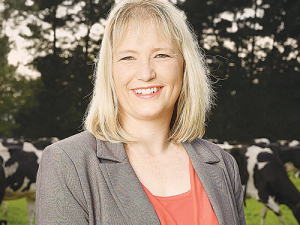2017 has begun on a positive note for the country’s farmers with rural confidence levels edging up, primarily driven by signs of renewed optimism among horticulturalists and sheep and beef producers.
The first quarterly Rabobank Rural Confidence Survey for the year, completed in March, has shown net farmer confidence has risen to positive +27%, up from +25% recorded in the December 2016 survey.
It also found the number of farmers expecting the agricultural economy to improve in the year ahead had declined slightly to 34% of those surveyed (compared with 39% in the previous quarter); those expecting agricultural economic conditions to worsen had halved to 7% (14%).
Rabobank New Zealand general manager for Country Banking, Hayley Moynihan, says this was the lowest pessimistic outlook on the agricultural economy recorded among farmers since December 2013.
“Not surprisingly, the proportion of farmers with a pessimistic view on the outlook for the rural economy had been significantly higher over the past three years – reflecting the tough ride we’ve had with some commodity prices over that time, most notably dairy.”
Ms Moynihan says horticulture producers and sheep and beef farmers had shown signs of increasing optimism about the agricultural economy. Overall net confidence in the horticulture sector climbed from +26% to +39%, and among sheep and beef farmers confidence moved out of negative territory – from -5% to +9 %.
On the other hand, dairy sector confidence declined from a net 52% in the previous survey to 41%. However, dairy farmers still recorded the highest confidence levels of all farmers surveyed.
“After rallying in the middle of last year, optimism among dairy farmers has clearly tempered in this survey,” Ms Moynihan said. “Dairy commodity prices have softened since the previous survey, and in particular the GDT auction where milk powder prices took a tumble was held during this survey period.”
Dairy farmers’ expectations for their own business performance remained optimistic. At a net positive reading of +54%, dairy was the most optimistic sector for expected business performance in the coming 12 months, although this was down from +67% in the last survey.
Sheep and beef farmers had recorded the biggest turnaround in expectations for their businesses, with the net indicator moving back, albeit just, into positive territory with a +2% reading (up from -25%).
Ms Moynihan said while tight lamb supply had helped schedules remain steady, demand for product continued weak due to “global forces”.
Horticulture producers were increasingly optimistic in their expectations about business performance: the net measure climbed from +19% last survey to +44%.
Farmer investment intentions increased further this quarter to their highest level since the end of 2014.



















